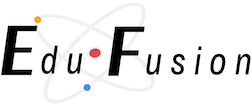
How many questions have you asked in your class this week? If you are teaching a lecture type class you may have a reserved period at the end of class and there may be questions, or the students may want to get out of class early. In the online classroom, we have an added benefit of being able to address each student’s response and add in questions that help students to dig deeper. Questioning and the development of critical thinking in the classroom can be as simple as asking questions and then being willing to explore with the students. If you are not currently using questioning, it is something that you might give a try. After all, in our class discussions, how can we really dig into the topic and test understanding, build on concepts, and relate information to life if we are not building these discussions and exploring with our students each day?
If you are worried that this will create an extra burden in an already busy day, I will try to allay some of your fears. There does not seem to be one formula for questioning. In fact, Smith (2015) in her case study found that whether we are using a formal method of questioning or impromptu questioning that goes with the flow of the responses, we are having a positive impact on engagement and learning.
When we think about the categories of questions, broadly speaking, there are three types of questions that can help you build stronger class discussions.
- Questions that test comprehension
- Questions that build on concepts.
- Questions that relate learning to life
There is really no secret behind these categories. We need only look back at Bloom’s taxonomy. The 6 levels can all find a place within the three categories as we work to do everything from test for comprehension, build connections between concepts, and help the students to make the connections between what they are learning and life. This means that our questions may often be less abstract and more oriented or related to something familiar. Tofade, Elsner, & Haines (2013) suggest questions that
elicit responses in the knowledge, comprehension, and application domains are frequently considered lower-order questions, while questions in the analysis, synthesis, and evaluation domains are considered higher-order questions. Higher-order questions elicit deeper and critical thinking; therefore, teachers are encouraged to ask questions in these domains. (p.1)
For example, when students are exploring problem-solving, one might use probing questions to explore the methods that students have used before and how this compares to the new methods they are processing. House, Chassie, & Spohn (1990) suggest that the “context and phrasing of questions determine the various levels of thought processing necessary for appropriate learner response” (p. 197). If we follow this line of reasoning then as we move beyond the initial questions related to understanding and knowledge, we can begin to dig deeper so the students can explore how the new methods work and how they will apply them in life. Allowing the students to analyze the methods for strengths and weaknesses may also be a way to help them further explore and make the methods their own.
A discussion on questioning would not be complete without at least a short discussion of Socratic questioning. In the online classroom, this exploration can occur as easily as in a ground class, if the students are engaged and want to work through to find the answers. This method really revolves around the questions and for this to work, students need to be comfortable enough to ask questions and explore. This can be the most difficult part of the process, but if the students will buy into the process, they can reap the benefits of answering and asking their own questions.
At the end of the day, there really is no secret to success using questions. It will take some practice and a willingness to explore. As you reflect back on your last week in class, how many questions did you ask? Were they designed to test understanding, build on concepts, or relate the learning to life?
References
House, B., Chassie, M. & Spohn, B. (1990). Questioning: An essential ingredient in effective teaching. The Journal of Continuing Education in Nursing, 21(5), 196-201. Retrieved from ProQuest database.
Smith, M. E. (2015). The impact of an explicit questioning strategy using a personal response system on student self-efficacy of undergraduate learners (Order No. 3687320). Available from ProQuest Dissertations & Theses Global. (1668130501). Retrieved from ProQuest database.
Tofade, T., Elsner, J., & Haines, S. T. (2013). Best practice strategies for effective use of questions as a teaching tool. American Journal of Pharmaceutical Education, 77(7), 155. Retrieved from ProQuest database.
